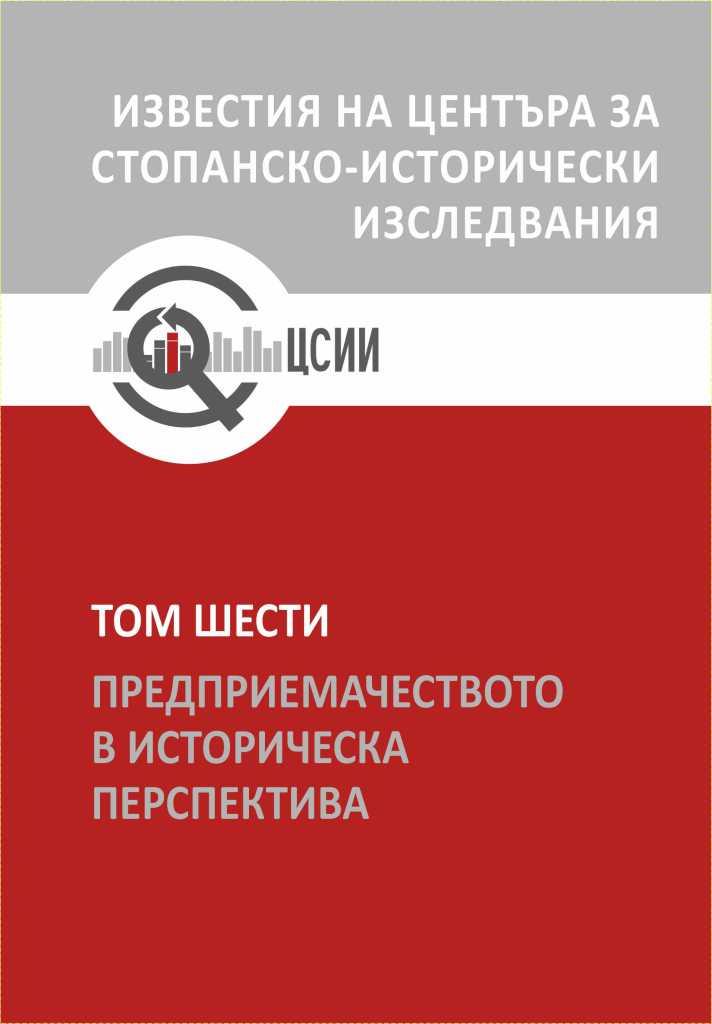Към въпроса за занаятчиите в каза Осман пазар през 50-те и 60-те години на ХІХ в. Опит за количествена и възрастова характеристика
About the Craftsmen in Kaza of Osman Pazar, 1850s–1860s. An Attempt for Quantitative and Age Characteristics
Author(s): Miroslav ToshevSubject(s): History, Economy, Business Economy / Management, Economic history, Local History / Microhistory, 19th Century, Marketing / Advertising
Published by: Център за стопанско-исторически изследвания
Keywords: craftsmen; kaza Osman Pazar; 1850s; 1860s; quantitative and age characteristics; esnaf
Summary/Abstract: In the proposed article, based on a two ottoman Descriptions of craftsmen from 1859 and 1864–1865, preserved at the Oriental department of the National Library ‘St. St. Cyril and Methodius’, for kaza Osman Pazar and Osman Pazar, today Omurtag, are systemized and presented the number of craftsmen and the “guild”, number of the craftsmen – masters, journeymen and apprentices and their middle age through 1864-1865. The following conclusions are made based on the received data: In kaza Osman Pazar through 1858–1859 are registered in total 20 crafts, officially described as organized in 19 “guild”s and one “group”/ the craftsmen are divided into 359 masters, 107 journeymen and 81 apprentices. In total, with crafts are occupied 583 people. In Osman Pazar town through 1864-1865 are registered 24 crafts, from which are readable the names of 22 and the other 2 are hidden because of a damage in the paper. The craftsmen are officially described as organized in 24 „guilds”. The tailors have 2 separate organizations, divided by a religious principle and innkeepers and bartenders are united in 1 “guild”. The craftsmen are divided in 214 masters, 88 journeymen and apprentices 55+1-2?. In total, in crafts are occupied 357+1-2? People. The age of the listed journeymen and apprentices is really high and stands out sharply from the common accepted ideas. Most probably, in this case is about hired workers who don’t have capital to open their own shop or the market is full and there is no place for them. In the biggest part of the crafts, Journeymen and apprentices are not registered, probably because the father masters are teaching the sons to their craft. These students and apprentices by itselffind itmore profitable not to separate as independent masters, so they won’t invest their capital in new tools and workshops. At the same time, as they don’t register officially, the don’t pay taxes. In the period 1859–1865 in Osman Pazar are registered new crafts. It should be underlined that almost all of them can define their selves as delivering “luxury” services and goods. Therefore, old Osman Pazar and the region are developing successfully, the local people are getting rich and in the local economy are discovered new market niches for different services and “goods of the luxury”. In conclusion – during the 60’s years of XIXc. Osman Pazaroutlines as a significant crafts center which can compare by number of craftsmen with the famous “proto-industrial” centers as Kotel and Troyan.
Journal: Известия на Центъра за стопанско-исторически изследвания
- Issue Year: VI/2021
- Issue No: 1
- Page Range: 265-283
- Page Count: 19
- Language: Bulgarian

